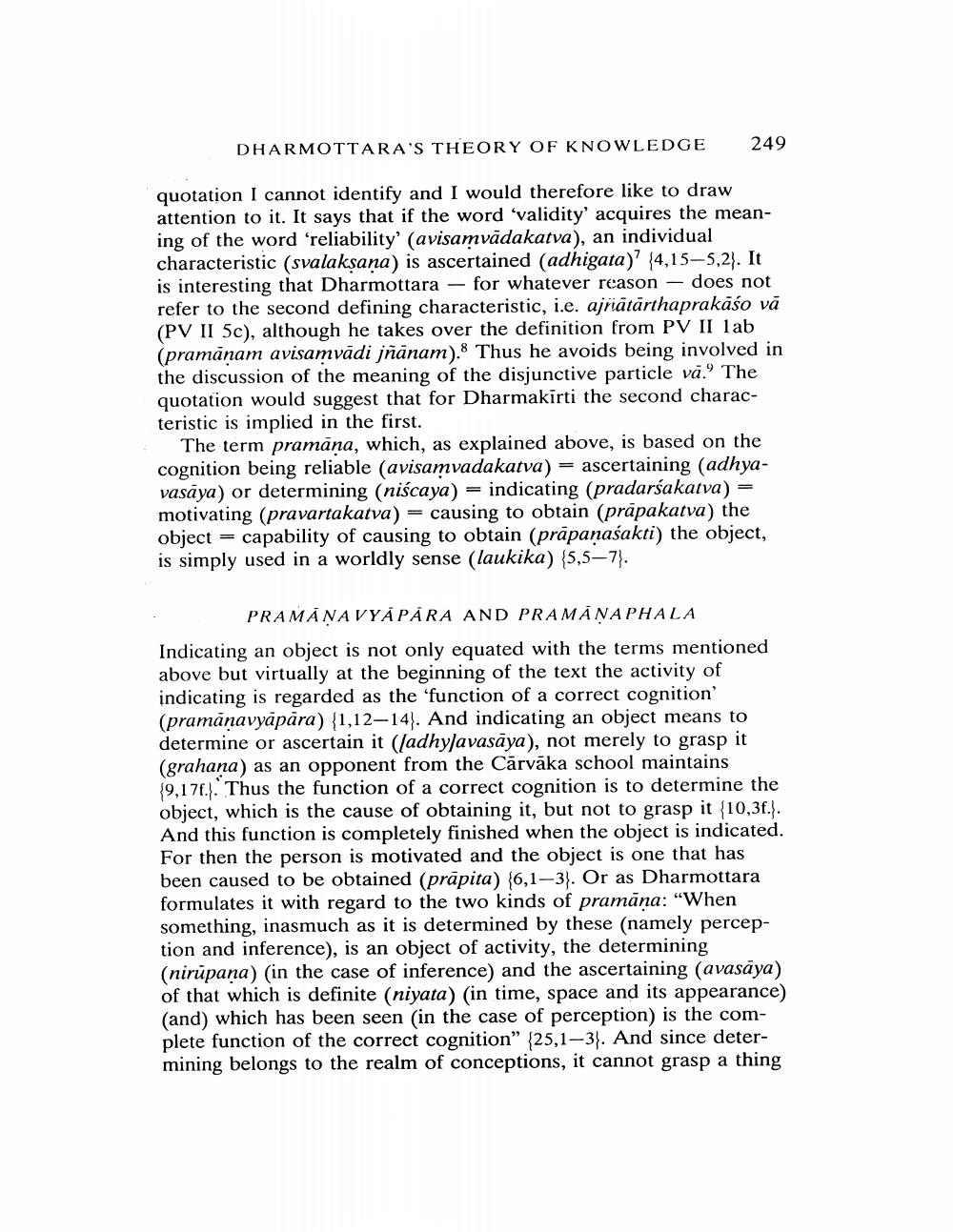________________
249
DHARMOTTARA'S THEORY OF KNOWLEDGE
quotation I cannot identify and I would therefore like to draw attention to it. It says that if the word 'validity' acquires the meaning of the word 'reliability' (avisamvadakatva), an individual characteristic (svalakṣana) is ascertained (adhigata) (4,15-5,2). It is interesting that Dharmottara for whatever reason - does not refer to the second defining characteristic, i.e. ajrätärthaprakāśo vȧ (PV II 5c), although he takes over the definition from PV II lab (pramaņam avisamvadi jñānam)." Thus he avoids being involved in the discussion of the meaning of the disjunctive particle vä." The quotation would suggest that for Dharmakirti the second characteristic is implied in the first.
The term pramāna, which, as explained above, is based on the cognition being reliable (avisamvadakatva) = ascertaining (adhyavasaya) or determining (niścaya) indicating (pradarśakatva) motivating (pravartakatva) - causing to obtain (prapakatva) the object capability of causing to obtain (prapanaśakti) the object, is simply used in a worldly sense (laukika) (5.5-7).
PRAMANAVYAPARA AND PRAMANAPHALA
Indicating an object is not only equated with the terms mentioned. above but virtually at the beginning of the text the activity of indicating is regarded as the 'function of a correct cognition" (pramänavyäpära) (1,12-14). And indicating an object means to determine or ascertain it (Jadhyavasaya), not merely to grasp it (grahana) as an opponent from the Cärväka school maintains. (9.176). Thus the function of a correct cognition is to determine the object, which is the cause of obtaining it, but not to grasp it (10,3). And this function is completely finished when the object is indicated. For then the person is motivated and the object is one that has been caused to be obtained (präpita) (6,1-3). Or as Dharmottara formulates it with regard to the two kinds of pramāna: "When something, inasmuch as it is determined by these (namely perception and inference), is an object of activity, the determining (nirupana) (in the case of inference) and the ascertaining (avasaya) of that which is definite (niyata) (in time, space and its appearance) (and) which has been seen (in the case of perception) is the complete function of the correct cognition" (25,1-3). And since determining belongs to the realm of conceptions, it cannot grasp a thing




